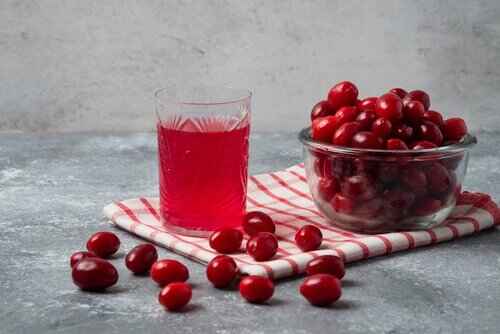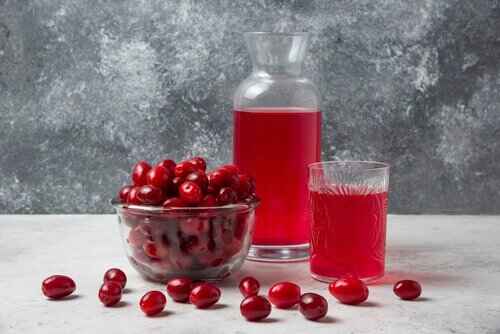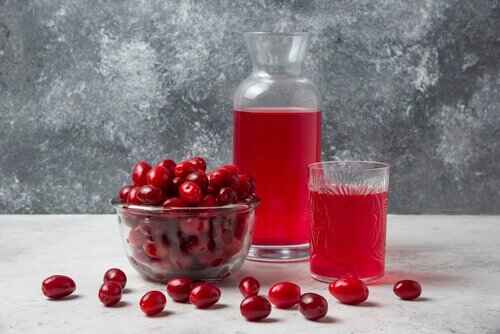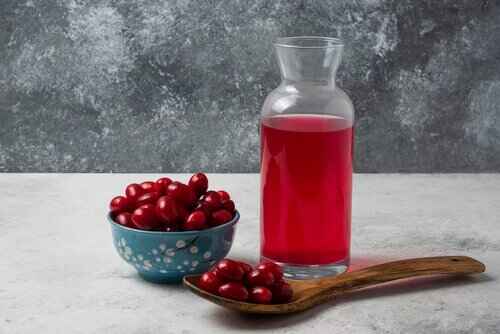
Mar 15 , 2024
In the realm of health and wellness, myths often circulate, leaving individuals perplexed about what truly benefits their bodies.
One such topic of debate is the efficacy of cranberry juice in combating kidney stones.
As we delve into this discourse, we seek to unravel the truth behind the question: is cranberry juice good for kidney stones?
Kidney stones, those tiny yet excruciatingly painful formations within the urinary tract, afflict millions worldwide.
Amidst various remedies and preventative measures, cranberry juice emerges as a popular contender purported to aid in kidney stone prevention.
But does this tart beverage truly possess the power to thwart these mineral formations, or is it merely a fruitless endeavor?
Let's embark on a journey to scrutinize the scientific evidence and separate fact from fiction.

It is a common health disorder that affects around 1 in 11 adults in the US.
Kidney stones also known as nephrolithiasis, are solid crystals of chemicals in the urine.
Types of kidney stones include uric acid, struvite, cysteine, calcium oxalate, and calcium phosphate.
Kidney stones vary in size, from a small rice to even the size of a golf ball, but they are rare.
The common form of kidney stones is made up of calcium oxalate.
It is estimated that around 32 - 46% of cases.

Cranberry juice is rich in oxalates, which can raise the risk of calcium oxalate kidney stones.
Oxalates bind to calcium when you consume a lot, because of their properties, especially if you are susceptible to nephrolithiasis.
One older research suggested that cranberry juice reduced urinary citric acid excretion, which contributes to the development of kidney stones.
However, another older research suggested that cranberry juice did not affect citric acid levels.
Furthermore, a study found that cranberry juice makes urine more acidic by lowering its pH level.
Raised acidity increases the risk of developing uric acid and calcium oxalate stones.
Currently, more research has found that cranberry juice effects depend on the type of stones you tend to develop.
If you are prone to uric acid and calcium oxalate stones, it is best to avoid or limit cranberry juice.

Chemicals contained in Cranberries protect urinary tract cells from bacteria.
But they are unable to remove bacteria that are already spread to the urinary tract.
That also explains why Cranberry juice may help to prevent UTIs, but doesn't seem able to treat them.
People commonly use cranberry juice and extract to prevent urinary tract infections.
Cranberry is also used for enlarged prostate, the common cold, kidney stones, and various health conditions, but there is no proven research to support these uses.
Common Uses

The well-known use of Cranberry juice is that it may help to prevent urinary tract infections (UTIs).
The chances of getting a UTI (urinary tract infection) increase with age.
Few allopathic antibiotics are effective against UTI but they also carry side effects.
Therefore alternatives like drinking Cranberry juice are popular.
A-type proanthocyanidins antioxidant present in cranberry juice reduces the risk of bacteria that cause UTI.
Anthocyanins are important antioxidants present in cranberry juice that may help in lowering cholesterol levels.
They play an important role in protecting the body from free radicals which might benefit by decreasing the bad cholesterol and may help produce good” cholesterol in the body.
Cranberry juice has antibacterial properties which may protect teeth against bacteria, which might be useful in reducing the formation of dental plaques.
Precautions
You should drink Cranberry juice at moderate dosage.
However, precautions are necessary to follow.

Infections of the bladder, kidney, or urethra.
Drinking Cranberry juice may help to prevent urinary tract infections in children, adult females, and people who are at risk of developing urinary tract infections because of radiation treatment or certain surgeries.
But it's not effective in the neurogenic bladder, a medical condition caused due to spinal cord injury.
Cranberry juice is not effective in preventing UTIs in elderly or pregnant people.
Cranberry juice is a common food product popular among people.
Cranberry juice is safe for most adults.
But drinking too much Cranberry juice may cause some side effects such as diarrhoea and upset stomach in some people.
The bioactive compounds in Cranberry juice such as flavonoids and antioxidants may interact with other drugs resulting in herb-drug interaction.
This might affect the complete metabolism of certain drugs.
Conclusion
Kidney stones are solid crystals that are formed from chemicals in the urine.
They are often caused by genetics, medications, chronic dehydration, diet, and other lifestyle factors.
Cranberry juice has been thought to prevent kidney stone formation but a study suggested that it may increase the risk of kidney stone formation.
Ideally, you should take cranberry juice for moderate consumption.
Rather you may be better off consuming citrus juices or apple juice because they are linked with a lower risk of kidney stones.
